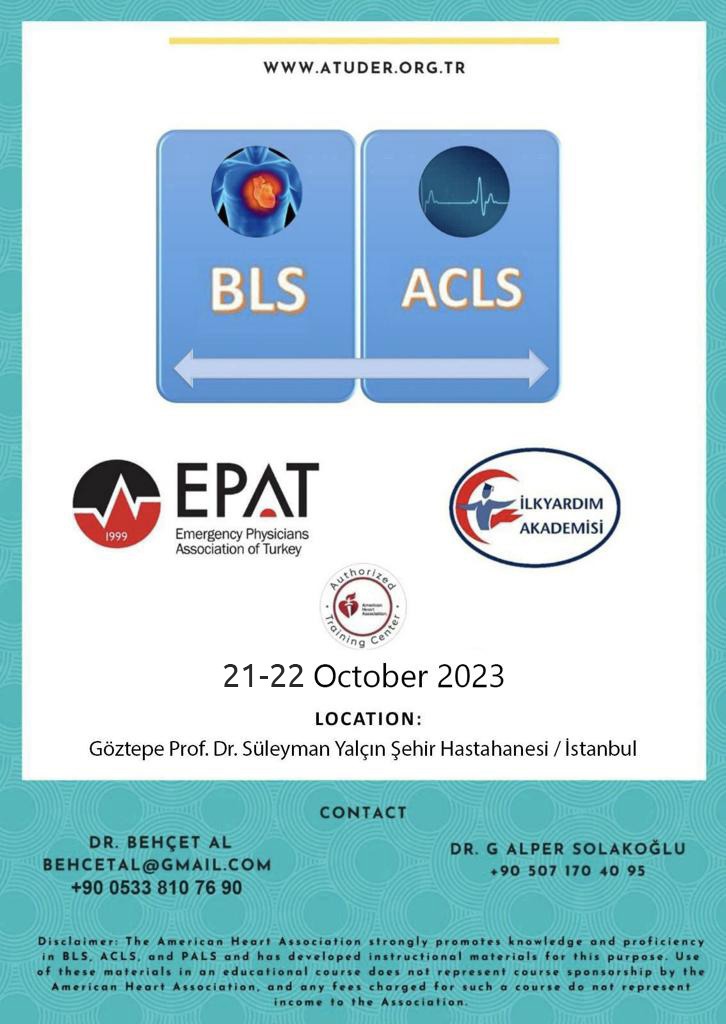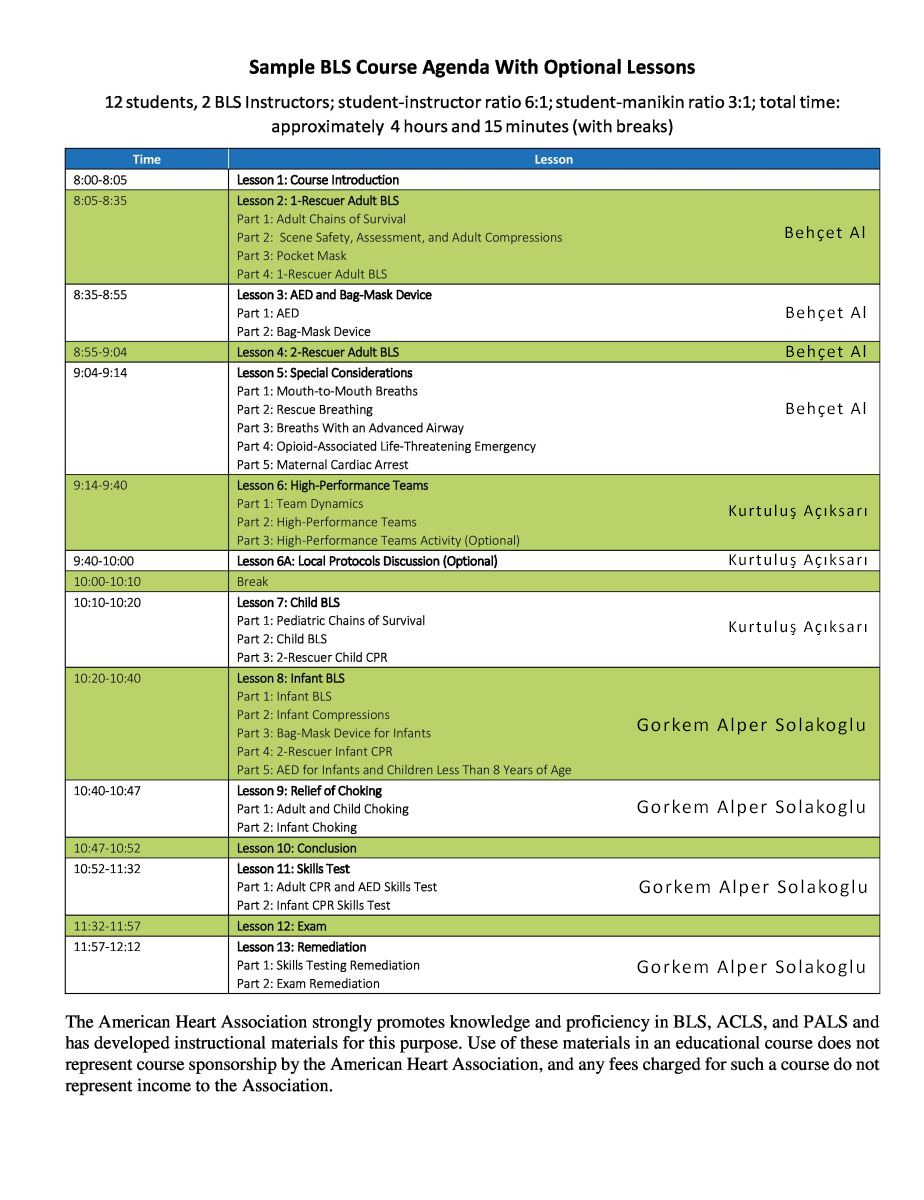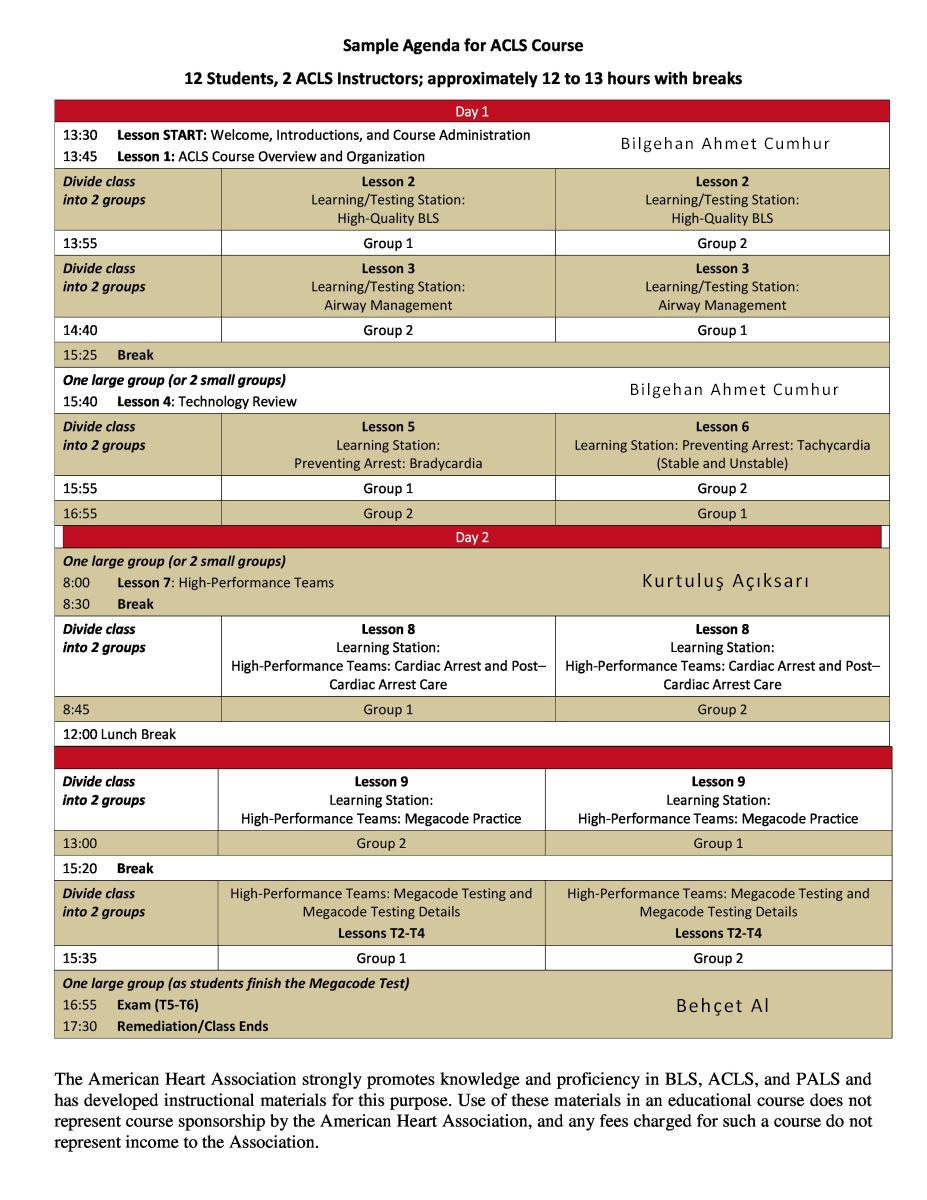
Bilimsel Programı indirmek için tıklayınız


This class is for an American Heart Association ACLS and BLS Certification bundle and when the class is completed you will receive a certificate valid for 2 years from the American Heart Association.
Basic Life Support
The American heart association’s Basic life support (BLS) Course has been updated to reflect new evidence in the 2020 American Heart Association Guidelines. Our course is video-based and instructor led. The course teaches to perform one rescuer and team BLS skills for both in and out of hospital adult, child and infant victims of cardiac arrest. The course also features the usage of AED and relief of choking . Our course is ideal for learners who prefer group interaction and feedback from an instructor while learning skills
Course content
-
Understanding the chain of survival.
-
The importance of High-quality CPR and how to perform it.
-
The usage of an AED (Automated external defibrillator)
-
How to give breaths with different airway devices
-
How to work as a team to save a life.
-
How to save a choking victim
Course features
Audience: This course is designed for both medical and non medical people
Material provided: BLS reference cars and online BLS provider book which is updated according to latest evidence by AHA.
Course format: The trainees are expected to read the ebook before the onset of the course and finish the pretest.
Certificate : Score 84% in theory (21/25) and demonstrate efficiency in the skills you learnt on course day to receive your American Heart Association BLS course completion eCard, valid for 2 years. (Within 24hrs)
Advanced Cardiac Life Support
Upon completion of BLS, you will be taken to course for Advanced Cardiovascular Life Support (ACLS) which is build on high quality CPR as emphasized in BLS course
Features & Benefits
Healthcare providers will enhance their skills in the treatment of the adult victim of a cardiac arrest or other cardiopulmonary emergencies. ACLS emphasizes the importance of basic life support CPR to patient survival; the integration of effective basic life support with advanced cardiovascular life support interventions; and the importance of effective team interaction and communication during resuscitation.
On the course day the traaines will perform ACLS principles in simulated learning environment based on realistic scenarios with their team. In these scenarios the management of tachy and brady aritmias, the management of cardiac arrest, post cardiac arrest care will be covered. Participants will be involved in simulated clinical scenarios that encourage active, hands-on participation through learning stations where students will practice essential skills individually, as part of a team, and as team leader. The course is ideal for participants who enjoys active learning via feedbacks both from team and instructors.
Course content
-
Review BLS + AED usage.
-
Recognition, management of ACS and stroke.
-
Recognition and management of brady and tachyarrhythmias.
-
Recognition and management of cardiac arrest, respiratory arrest, immediate post–cardiac arrest care.
-
Impact of team dynamics and Feedback to team
-
Role of a rapid response team or medical emergency team.
Course features
Audience: : This course is designed for all Healthcare professionals (Physicians, nurses, paramedics etc.) who are involved in the management of cardiopulmonary arrest or other cardiovascular emergencies.
Material provided: ACLS reference cars and online ACLS provider book which is updated according to latest evidence by AHA and educational videos.
Course format: The trainees are expected to read the ebook before the onset of the course and finish the pretest along with educational videos.
Certificate : Score 84% in theory (21/25) and demonstrate efficiency in the skills you learnt on course day to receive your American Heart Association ACLS course completion eCard, valid for 2 years. (Within 24hrs)
For more details contact
Behcet AL MD : +90 533 810 76 90
Gorkem Alper SOLAKOĞLU MD: +90 507 170 40 95
Disclaimer: The American Heart Association strongly promotes knowledge and proficiency in BLS, ACLS, and PALS and has developed instructional materials for this purpose. Use of these materials in an educational course does not represent course sponsorship by the American Heart Association, and any fees charged for such a course do not represent income to the Association.